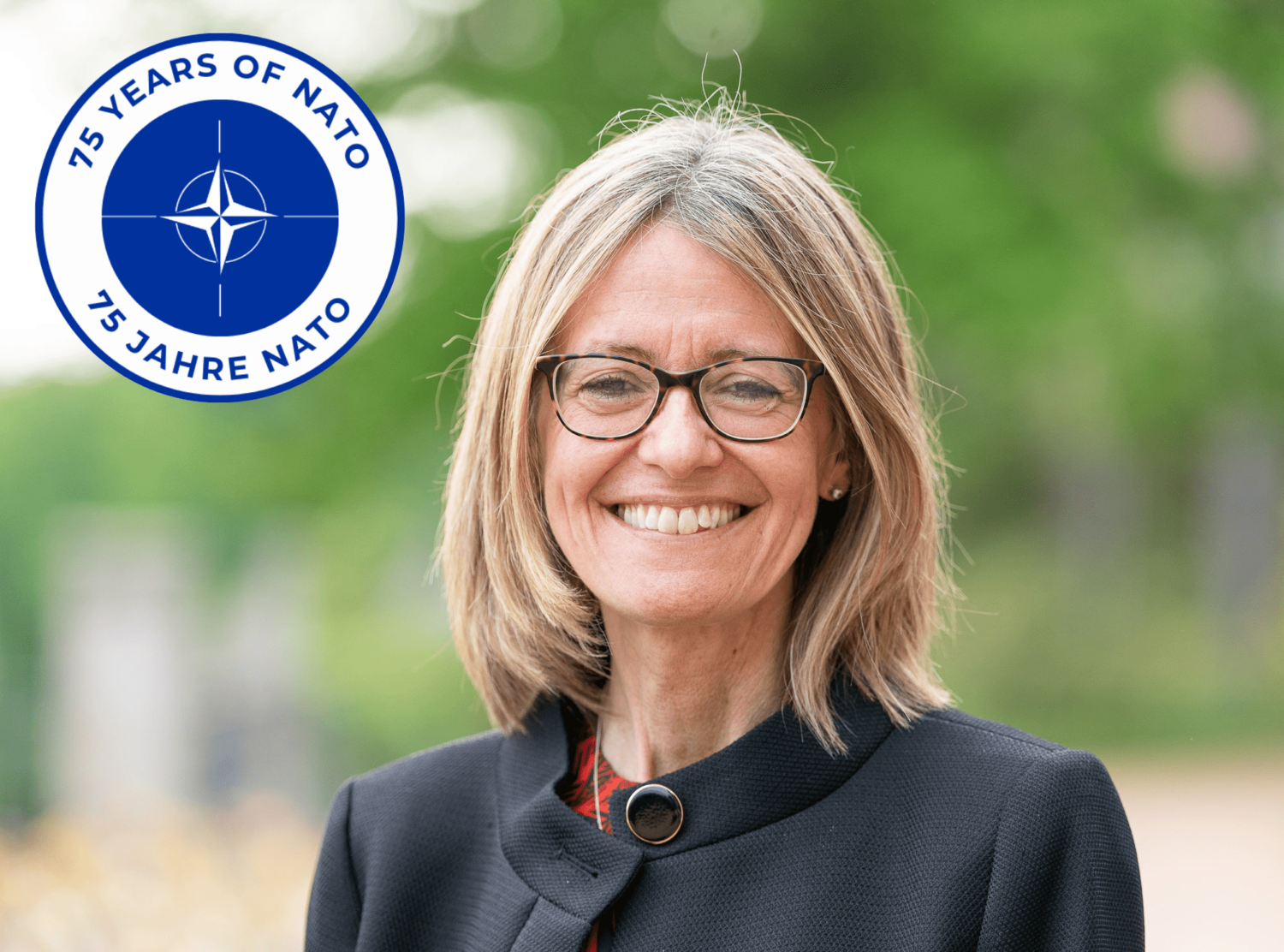The bedrock of European security has British DNA
 Ambassador Jill Gallard Foto: Embassy of the United Kingdom to Germany
Ambassador Jill Gallard Foto: Embassy of the United Kingdom to Germany
by Jill Gallard, British Ambassador to Germany
On 4 April 1949, delegates from 12 countries – including the UK – gathered in Washington, D.C., to commit their nations to one another’s defence in the hope of avoiding another devastating war and to safeguard the democracy and freedom of their peoples.
Ever since NATO’s foundation, the United Kingdom has played a leading role at the heart of this transatlantic Alliance. It could even be said that NATO has British DNA: its first headquarters were in London; its first Secretary General British; and the British Foreign Secretary, Ernest Bevin, was instrumental in negotiating its establishment.
Three quarters of a century later, NATO is now the most successful defensive Alliance in history. NATO is bigger, stronger, and more united than ever, keeping its one billion people safer and more secure with its „one for all and all for one“ security guarantee. It is essential for the maintenance of peace and security of its members and has been the bedrock of European security for 75 years.
NATO is bigger, stronger, and more united than ever, keeping its one billion people safer and more secure with its „one for all and all for one“ security guarantee.
Two of the leading members of this Alliance are the UK and Germany. Indeed, Germany of course plays a unique role in enabling NATO’s defence capabilities. For example, more than a quarter of the British Army’s collective training takes place in Germany, leveraging the country’s strategic location at the heart of Europe. Additionally, Germany’s role as the “Drehscheibe” allows the UK to effectively prepare, deploy, and support forward defence forces along the NATO Alliance’s Eastern Flank.
Furthermore, Germany and the UK are the only NATO countries that conduct fully integrated air policing operations. This seamless integration of air defence capabilities across the Alliance is a testament to our strong defence cooperation.
As British Ambassador to Germany, I am also particularly aware of the pivotal role Berlin played in the formation of NATO. The Berlin Blockade which began in 1948 by Soviet forces cutting off links to West Berlin and the subsequent Allied airlift efforts may have ended peacefully after nearly a year. However, a few weeks after the end of the blockade, East and West Berlin officially separated. Over a decade later, on 13 August 1961, the world awoke to over 100km of barbed wire encircling West Berlin. This was one of the darkest days for post-war Europe.
Russia’s invasion of Ukraine has shattered peace in Europe and challenged global security
This year marks not only NATO’s 75th anniversary, but also 35 years since the fall of the Berlin Wall. Yet, the optimism and hopefulness in the early 1990s that followed its fall is now only a faint memory. Russia’s illegal invasion of Ukraine two years ago has shattered peace and stability in Europe and challenged global security.
This security crisis, of Russian President Putin’s making, threatens our way of life. The UK, Germany and our NATO allies must act to protect our societies – and both resource and resolve are required. Germany’s support of Ukraine since the Russian invasion began – a total of €28 billion in military support provided or pledged (including at least €7 billion in 2024) – has therefore been invaluable. It is however clear that if Russia succeeds, the outcome will be far more expensive than helping Ukraine now. Ukraine is not only defending its right to exist as a sovereign and democratic country; it is defending the right of peoples of all nations to live in freedom, without fear of aggression.
Putin has underestimated NATO. When he invaded Ukraine in 2022, he said he wanted less NATO – what he got was more.
Putin has underestimated NATO. When he invaded Ukraine in 2022, he said he wanted less NATO – what he got was more. Finland and Sweden becoming allies makes NATO stronger and all of us more secure. NATO continues to deter Russia, strengthen its defence industrial base, and build its partnerships.
2024 will be a historic year for NATO. As the Alliance celebrates its 75th birthday, the combination of the ongoing war in Ukraine, growing geopolitical competition in the Indo-Pacific, and emerging technologies will require NATO and its allies to show it can adapt to meet the challenges of the next 75 years.
In this more contested and less secure world, NATO’s importance is only set to expand. This anniversary is the moment to renew our historic pledge to this Alliance and to say that no matter what or who tests us, we will not waiver.
About the author: Jill Gallard was appointed British Ambassador to the Federal Republic of Germany on 11 November 2020. Before joining the Embassy, she was the Foreign and Commonwealth Office’s Deputy Political Director (2018-2020) and Director of Human Resources (2014-2018). From 2011 to 2014 Gallard served as British Ambassador to Portugal.
